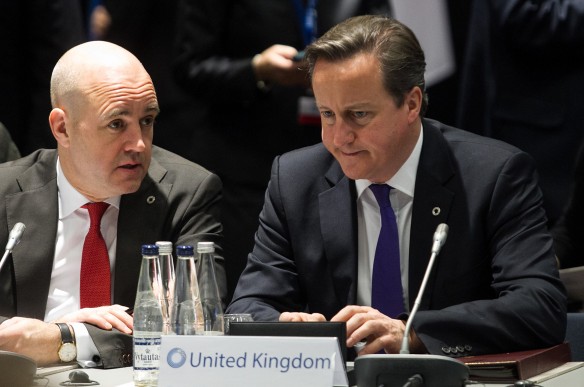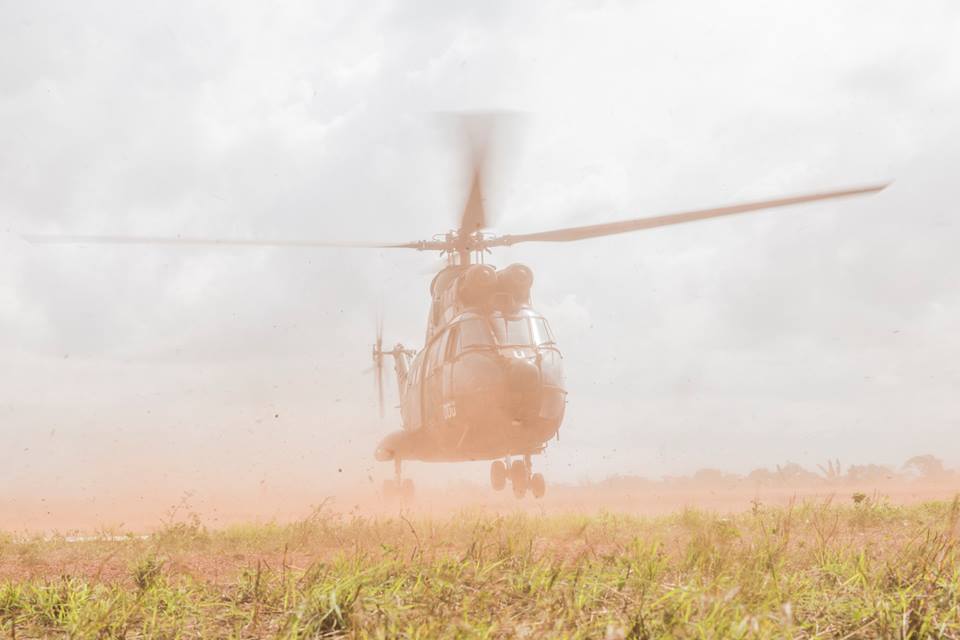Battlegroup for the Central African Republic? How Cathy said stop!

(BRUSSELS2, exclusive) According to our concordant information, the preparation for the deployment of the rapid reaction force (battlegroup) of the European Union in the Central African Republic - prepared for several days by the military staff of the European Diplomatic Service (EEAS) - has been stopped net on the orders... of the High Representative of the EU, Catherine Ashton.
A planned battlegroup
The purpose of planning (read: An EU battlegroup in the Central African Republic? The discussion continues) was to complete the action of the French troops, who were preparing to "enter first", and to liaise with the African troops, to put an end to the massacres and restore some security.
Stopping the massacres can wait!
Alas... the High Representative has put a stop to it. " I am not opposed in principle she explained to her teams at the end of November on the sidelines of the Eastern Partnership Summit in Vilnius. " But it is vital that France approaches the UK at ministerial level for this. It is essential to have a "Yes" from the United Kingdom before going any further. ". And to add “I cannot go in front of the foreign ministers (with) this ". Break up!
David Cameron: the Mister No of European defense
The British "no" is, in fact, known. If some soldiers would be ready to go there. At Number 10, the residence of Prime Minister David Cameron, as at Whitehall, the headquarters of the Ministry of Defence, the answer is clear and unequivocal, it is "No". Those responsible for the EEAS are quickly fixed. There will be no battlegroup, no military option, or even the shadow of a modular approach. For London, the cornerstone of European security is NATO (details in the Club: NATO the cornerstone, Europe the toe (Lidington)). And when she takes the permanence of the battlegroup, it is so that it remains on the ground (unless the supreme interest of the Crown is at stake). The European Union only has a "complementary" and preferably "civilian" action objective.
And if we put a little humanitarian, it would not be more beautiful?
Shortly after, one of the senior officials of the EEAS, in charge of the CSDP, Maciej Popowski, in turn took up the pen. In the name of the principle of reality, he proposes a solution which is intended to be consensual. " It would be more interesting to present the European commitment in the Central African Republic in a broader framework, involving humanitarian, development and security work, together ". A "marketing gimmick » as he will recognize himself. Corn " it could go better "He says.
Chamberlain's spirit...
But everyone knows it. Even humanitarians and NGOs of all stripes say so - even Human Rights Watch, which is little suspected of being complacent towards French forces in Africa. We need to restore some semblance of order. We are facing a tragedy. The European Commissioner for Humanitarian Aid will say it: "the issue of genocide is not purely hypothetical" (read on the Club). Nothing works. In suits and ties, in their offices, a few officials decided that it was not even worth trying to act and that it was better to surrender immediately.
...rather than the European and humanist spirit
This refusal is problematic. What happened in the Central African Republic shows massacres and war crimes (since committed by armed forces against civilians). The intensity of the massacres and their targeting could perhaps reclassify them as crimes against humanity or even genocide (history will tell). By leaving the French alone to go into battle and lose men; by refusing to give a "green light" to the EU's rapid reaction force; while there was a mandate from the United Nations, there is a very clear breach of the mandate entrusted to the European authorities by the Treaties within the framework of the CSDP - the common security and defense policy = "to ensure the maintenance peace, conflict prevention and the strengthening of international security in accordance with the principles of the United Nations Charter". This act cannot remain without political responsibility. We have to draw the consequences...
NB: you can add two remarks. The Ministers of Defense and Foreign Affairs have just approved, on November 18, a reform of European battlegroups, allowing for more flexibility or suppleness in the sending of a battlegroup. It would have been possible to inaugurate this evolution (a British idea by the way). The High Representative could certainly ask to study new options in a few days. A way not to remain inactive. In doing so, she will have saved her country from a scathing disavowal (the British veto, in fact, remained very discreet). And it returns the hot "potato" to the Greeks, Romanians and other Cypriots who ensure the relay of the permanence of the rapid reaction force from January 1st. At the EEAS, we know full well that this poses a real problem. This "battlegroup" being penniless, projecting itself in the Central African Republic (even if part of the cost - transport - is supported), is a very important effort... To those who claim that Catherine Ashton is not a fine politician , this maneuver is a scathing disavowal!
NB: In fact, the only hope of a European "relay" for the French rests on ... the Benelux and Germans who will have the "tour de role" of the battlegroup on July 1, 2014!
Read also:

Comments closed.